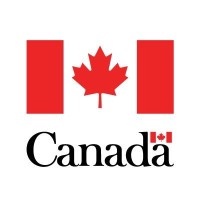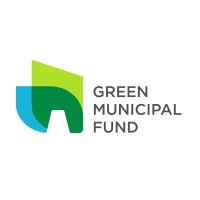
Accelerating community energy systems
At a glance
- Maximum amount : 200,000 $
- Up to 50% of project cost
- Closing date : March 31, 2025
- Public administration
- Canada
- All legal structures
- All revenue ranges
- All organization sizes
- Indigenous Peoples
- Rural or Northern Residents
- Canadians
Overview
The grant offers up to $200,000, covering up to 50% of eligible costs, and aims to accelerate community energy systems (CES) through studies identifying low-carbon energy opportunities and implementation mechanisms. Eligible activities include geospatial analysis, modeling energy demand, stakeholder engagement strategy development, and drafting municipal land-use policies that enable CES.
Activities funded
This grant supports projects that focus on assessing and developing community energy systems to promote low-carbon energy solutions. Eligible activities aim to identify opportunities and mechanisms for implementing sustainable energy systems within municipalities.
- Identifying, evaluating, and prioritizing opportunities for low-carbon community energy systems, including renewable and district energy systems.
- Conducting a geospatial analysis to determine optimal neighbourhoods for successful community energy system implementation.
- Modeling baseline energy demand for priority areas and projecting energy consumption and seasonal load profiles.
- Articulating concrete next steps for developing new community energy systems and increasing connections to existing systems.
- Developing a stakeholder engagement strategy to build support for community energy systems.
- Identifying and prioritizing mechanisms for accelerating community energy development, such as property tax rebates or fast-tracked approval processes.
- Advancing implementation mechanisms by clarifying legal, technical, and regulatory requirements.
- Developing municipal land-use policies to support community energy system zones.
- Conducting market research to gauge stakeholder awareness and support for district energy systems.
- Carrying out an equity assessment to analyze the impact on equity-deserving groups, addressing barriers and enhancing positive impacts.
Eligibility
Eligibility for this grant requires compliance with specific criteria related to the applicant’s organizational structure and partnerships.
- The applicant must be a Canadian municipal government such as towns, cities, regions, districts, and local boards.
- Municipally owned corporations, for example, a municipal utility, are eligible.
- An Indigenous community can be a lead applicant if they partner with a Canadian municipal government on an eligible project or hold a shared service agreement related to municipal infrastructure, climate change, or adaptation.
Who is eligible?
Canadian municipal governments, municipally-owned corporations, and Indigenous communities collaborating with municipal governments are eligible to apply for these grants.Eligible expenses
This grant supports projects that aim to identify and develop opportunities for low-carbon community energy systems. Eligible activities include comprehensive studies and strategic planning to create frameworks for implementing sustainable energy solutions within communities.
- Identification, evaluation, and prioritization of opportunity areas for community energy systems using geospatial analyses.
- Modeling anticipated baseline energy demand and seasonal load profiles for prioritized areas.
- Articulating next steps and completing feasibility studies for community energy systems.
- Developing robust stakeholder engagement strategies to foster partnerships and support.
- Assessing and prioritizing implementation mechanisms to accelerate community energy development.
- Advancing implementation mechanisms through legal, financial, and technical evaluations.
- Development of municipal land-use policies supportive of community energy systems.
- Conducting market research to gauge support for district energy systems from stakeholders.
- Conducting equity assessments to ensure fair distribution of project benefits and burdens.
Eligible geographic areas
This grant is open to Canadian municipal governments and municipally owned corporations across Canada. Eligible Indigenous and northern communities can also apply, especially those partnering with municipalities.
- Canadian municipal governments, including towns, cities, regions, districts, and local boards.
- Municipally owned corporations within Canada, such as municipal utilities.
- Indigenous communities partnering with Canadian municipal governments.
- Northern communities as defined by the three territories and northern regions of seven provinces in Canada (Newfoundland and Labrador, Québec, Ontario, Manitoba, Saskatchewan, Alberta, and British Columbia).
Selection criteria
The evaluation and selection of projects for this grant are based on specific criteria to ensure alignment with the grant’s objectives.
- Potential to lead to significant greenhouse gas (GHG) reductions.
- Strong support from political leaders, senior municipal staff, the local community, and implementation partners such as utilities, developers, or landowners.
- Support from official plans, secondary plans, community energy plans, or climate action plans.
- Leadership by a multidisciplinary team representing key departments.
- Collaboration with key implementation partners and equity-deserving groups or Indigenous communities.
- Strong integration of multi-solving approaches, such as maximizing environmental and socio-economic benefits.
- Advancement of equity, diversity, inclusion, and Reconciliation objectives.
- Increased climate resilience.
How to apply
Access the Application Guide
Initial Contact with GMF
Prepare Required Documents
- Review the list of prerequisites and supporting documents in appendix D of the application guide.
- Ensure you have a detailed project budget and are securing other funding sources for your project.
Create FCM Funding Portal Profile
- Visit the FCM funding portal to create your profile, and request a PIN to access the system.
- If you already have a profile, skip to the next step.
Pre-application Submission
Eligibility Determination
- A GMF outreach officer will review your pre-application to determine eligibility.
- You will receive a response within 21 business days about your eligibility to proceed.
Full Application Submission
- If eligible, access and complete the full application form through the FCM funding portal.
- Submit the completed application form, Excel project workbook, and required supporting documents.
Application Review by GMF Project Officer
- A GMF project officer will be assigned to review your application for completeness and accuracy.
- Work with the officer to resolve any remaining questions.
Peer Review and Internal Review
- An external peer review panel and internal analysis will evaluate your application.
- Recommendations will be made to GMF’s managing director and FCM’s Board of Directors.
FCM Funding Decision
- Funding decisions for plans, pilots, and studies are determined by GMF’s managing director within three to five months.
- For capital projects, FCM’s Board of Directors makes the decision within four to six months.
Specific Process for Quebec Municipalities
- Completed applications must be submitted to Quebec's MAMH before FCM processing.
- Submit applications via the Portail gouvernemental des affaires municipales et régionales after MAMH assessment.
Contacts
Frequently Asked Questions about the Accelerating community energy systems Program
What is the Accelerating community energy systems?
How much funding can be received?
Who is eligible for the Accelerating community energy systems program?
What expenses are eligible under Accelerating community energy systems?
Who can I contact for more information about the Accelerating community energy systems?
Where is the Accelerating community energy systems available?
Is the Accelerating community energy systems a grant, loan, or tax credit?
More programs like this
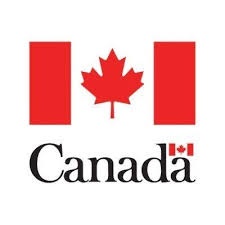
Canada Public Transit Fund
Housing, Infrastructure and Communities Canada
Active Transportation Fund
Housing, Infrastructure and Communities Canada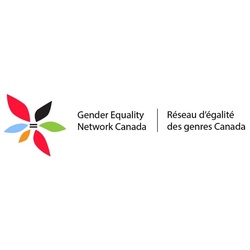
Equality for Sex, Sexual Orientation, Gender Identity and Expression Program
Women and Gender Equality Canada (WAGE)
Crime Prevention Action Fund (CPAF)
Public Safety Canada (PSC)
Substance Use and Addictions Program (SUAP)
Health Canada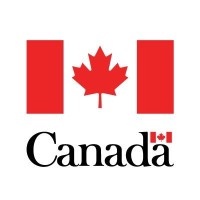
Rail Safety Improvement Program (RSIP) - Research and Education Component
Transport Canada (TC)
Enhanced Road Safety Transfer Payment Program (ERSTPP)
Transport Canada (TC)
Age Well at Home (AWAH) - In-Home Support Pilot Project Stream
Employment and Social Development Canada (ESDC)
Canada Nature Fund for Aquatic Species at Risk (CNFASAR)
Fisheries and Oceans Canada (DFO)